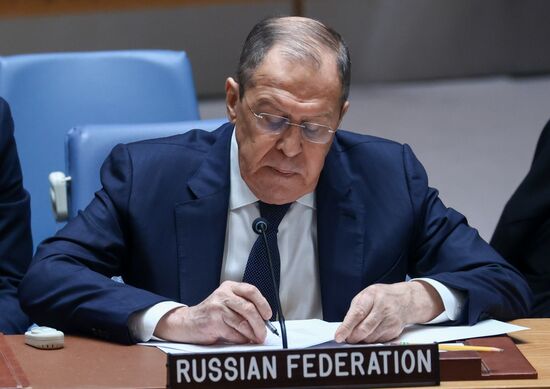

Moscow is ready to work with the administration of US President-elect Donald Trump, and the ball is on Washington's side, Russian Foreign Minister Sergey Lavrov said on Thursday.
"[Russian President Vladimir] Putin told the Valdai forum that he is always open for communication. We were not the ones who cut it off. The ball is on the other side," Lavrov said in an interview with Russian journalist Marina Kim when asked about prospects of the resumption of Russia-US contacts, considering that Moscow has already worked with Trump.
The objective to contain China may remain a priority for the US, including under the administration of President-elect Donald Trump, Sergey Lavrov said.
"The objective of containing China, set by US President Joe Biden's administration [will likely] remain a priority for the Trump administration as well. It is a key priority for them," Lavrov said in an interview with Russian journalist Marina Kim.
At the same time, Russia is perceived by the US as "today's threat," with Washington trying to stop Russia from proving that it is a "strong player" and from "undermining the West's reputation," Lavrov added.
China's economic success is the reason for the US's "rabid" policy toward the country, Lavrov said.
"The real reason why [the US] has recently gone—I would even say—'rabid'' is that China outperforms the US quickly and confidently," Lavrov said in an interview with Russian journalist Marina Kim.
China outperforms the US based on the norms of the International Monetary Fund, the World Bank, and the World Trade Organization, even though these mechanisms and institutions are controlled by Washington, Lavrov added.
In 2018, then-US President Donald Trump imposed tariffs of 25 percent on steel imports and 10 percent on aluminum imports, citing national security threats from foreign shipments. The tariffs remain in effect except for several countries, including Mexico.
The United States regularly accuses China of pursuing
non-market policies. Beijing maintains that it "firmly supports" the
multilateral trading system and points to the US practice of
"bullying" and imposing sanctions to stifle other countries'
companies.











